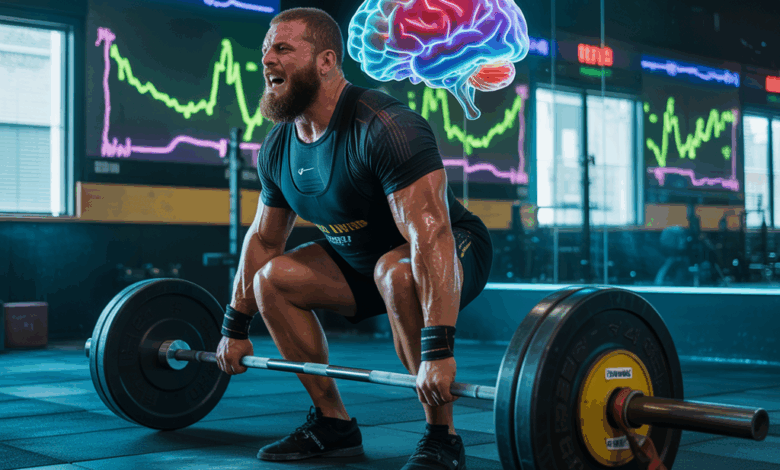Does Creatine Help With Adhd And Mental Focus

Ever sat down to finish an important task and felt like your brain hit a wall—distracted by every notification, memory fuzzy, motivation tanking? If you live with ADHD or just struggle with day-to-day mental focus, you’re not alone. Lately, athletes and biohackers have been asking: does creatine help with ADHD and mental focus? Let’s unpack the science, real-world experiences, and practical tips you can use today.
What is creatine and why people think it might help focus
Most people know creatine as the go-to supplement for strength and muscle gains. But creatine also plays a key role in brain energy metabolism. It helps replenish ATP—the primary energy currency in cells—so neurons can fire efficiently. Because ADHD and concentration problems often feel like “low battery” in the brain, it’s reasonable to wonder whether boosting brain energy with creatine could improve attention, working memory, or executive function.
How creatine works in the brain
- Creatine increases phosphocreatine stores, supporting rapid ATP regeneration.
- Enhanced energy availability can help neurons maintain signaling during demanding mental tasks.
- Some research hints at benefits for cognition during sleep deprivation or stress, when brain energy systems are taxed.
Does creatine help with ADHD and mental focus? What the research says
Short answer: promising but limited. A small number of studies have explored creatine for cognitive function, and a few animal studies suggest improvements in attention and impulsivity. Human research specifically on ADHD is scarce. Some small trials and case reports indicate potential benefits for mood and cognition in certain populations, but large, well-controlled clinical trials in ADHD are lacking.
That means creatine is not a proven ADHD treatment, but it may offer cognitive support for some people—especially when combined with exercise, good sleep, and nutrition. Always consult a healthcare provider before using supplements to manage ADHD symptoms or replace prescribed medications.
Who might benefit most?
- People with higher cognitive demands (students, shift workers) during periods of sleep loss.
- Those with low dietary intake of creatine (strict vegetarians/vegans), since they tend to have lower baseline creatine stores.
- Individuals using creatine as part of a broader lifestyle strategy including exercise and good sleep hygiene.
Practical tips: How to try creatine safely for focus
- Choose creatine monohydrate—it’s well studied, affordable, and effective.
- Typical dose: 3–5 grams daily. A short loading phase (20 g/day split across 4 doses for 5–7 days) speeds saturation, but isn’t necessary.
- Take with a meal or carbohydrate-containing drink to help uptake, though it’s not essential.
- Expect any effects on cognition to be subtle and gradual—track your attention, mood, and productivity over several weeks.
- Watch for minor side effects: weight gain from water retention, occasional GI upset. Stop supplementing and consult a clinician if you experience concerning symptoms.
Fitness and lifestyle practices that boost focus (and pair well with creatine)
Think of creatine as a supplement to a foundation of healthy habits. These evidence-based strategies amplify cognitive benefits and help manage ADHD symptoms naturally.
Exercise routines that sharpen attention
- Resistance training (3x/week): Compound lifts (squats, deadlifts, push presses) boost BDNF and executive function.
- HIIT (2x/week): Short, intense intervals (20–30 minutes) increase arousal and sustained attention.
- Mind-body workouts: Yoga or tai chi improve self-regulation and stress control—useful for impulse management.
- Try a focus-boosting circuit: 5-minute warm-up, 8 exercises at 40–60 seconds each (mix strength + cardio), 3 rounds. Use this on low-focus days to reset.
Daily habits that help more than supplements alone
- Prioritize 7–9 hours of consistent sleep—sleep is the most powerful cognitive restorative.
- Eat steady protein and healthy fats; consider omega-3s for brain health.
- Use structured routines and time-blocking to reduce decision fatigue.
- Limit excessive caffeine late in the day and manage screen time before bed to protect sleep quality.
Real-world example: A busy trainer’s story
Jordan, a personal trainer with ADHD, struggled with afternoon focus dips when managing clients and planning sessions. After consulting their doctor, Jordan added 5 g/day of creatine monohydrate to a routine that already included morning resistance training, a protein-rich lunch, and regular sleep schedules. Over six weeks they noticed slightly better sustained attention during paperwork and fewer “brain fog” moments. Jordan still relied on medication and behavioral strategies, but found creatine complemented their overall toolkit.
When to talk to a professional
If ADHD symptoms significantly impair work, relationships, or safety—even if you’re exploring supplements—seek evaluation from a qualified clinician. Never stop or change prescribed ADHD medications without medical guidance. A healthcare provider can help you understand potential interactions, appropriate dosing, and whether testing (such as baseline labs) is needed.
Frequently Asked Questions
No. Creatine is not a replacement for prescription ADHD medications. It may offer mild cognitive support for some individuals but should be used as a complementary strategy under medical supervision.
Any cognitive changes tend to be gradual. If you load creatine, you may reach steady muscle/brain stores faster (about a week), but meaningful changes in attention or mental clarity—if they occur—may take 2–6 weeks of consistent use alongside lifestyle practices.
Safety depends on age, health status, and medication use. Creatine is well tolerated in many adults, but parents and teens should consult pediatricians before use. Those with kidney issues or on certain medications should speak with their clinician first.
Conclusion: Does creatine help with ADHD and mental focus?
Does creatine help with ADHD and mental focus? The evidence is intriguing but not definitive. Creatine supports brain energy and may modestly improve cognitive resilience—especially for those with low dietary creatine or during high stress and sleep deprivation. It’s best treated as one tool among many: combine it with targeted exercise, consistent sleep, structured routines, and professional ADHD care when needed. If you’re curious, talk to your healthcare provider about trying 3–5 g/day of creatine monohydrate and track changes alongside lifestyle tweaks.
Ready to pair supplementation with effective training and nutrition? Check our workout routines for focus-boosting sessions, browse our nutrition guides for brain-friendly meals, and read our wellness tips to build a daily routine that supports attention and mental clarity. Try one change this week and see how your focus responds.





